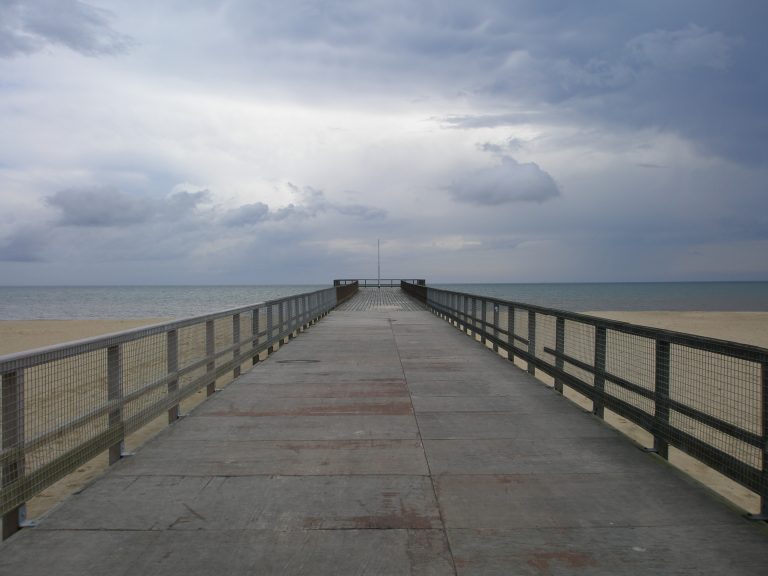I am skinny-dipping. Stripping off my clothes, running into the water, diving down naked to disappear for a few breaths from the shouts and sounds of the world. Shedding clothes, embarrassments, care. The surface breaks as I return for air. For a few moments, I am free, opened, beyond place, beyond space.
And then I am here. I breathe deeply, fully clothed in a compulsory uniform inside walls that do not vanish before half-closed eyes, seated during an officially-sanctioned time for Buddhist group meditation. My breath joins those of the women around me, travels across the walls and over the barbed wire. Freedom of breath cannot be measured, contained, or punished—as I breathe, my aliveness asserts itself, even laughs at its constraints. Yes, in this place it is an elusive joy, but I feel it now, as surely as I feel the knots of anxiety loosen in my shoulders.
The primary function of prison is to deprive the citizen of her freedom; there is no other lesson. To be excluded from society is supposedly the greatest loss one can suffer. Prison is the wall that separates and deprives, behind which the prisoner disappears from life—from family, from friends, from all that is loved. And without freedom of some kind, the human spirit shrivels, collapses into despair or bitterness. How easy it is to succumb to resignation, to gather anger to fill the spaces between the bars, between the interstices of one’s own ribs—to isolate one’s heart, and only then gain a perverse comfort.
In the first years of my sentence, I was awash in bitterness; every day I mourned the loss of my world. I was angry, but above all, fearful. I shut myself off, afraid that if I were to let my guard down in prison, even for a moment, I would be left defenseless; I might lose my essential self to the anonymity of concrete cell blocks. I walked the prison halls fearful, dreading collapse. The self I clung to was a rigid, fragile thing.
Many prison years passed before I decided to try sitting, and only then did I really begin to breathe. My heart became less constricted; the dharma path opened. I grew less afraid of what could happen to me.
Deepening my breath, lengthening my spine, I learn to discard my preconceptions and expectations—all the many hopes and fears and attachments that have given shape to my life. I learn to lay aside anxiety about what I am missing, what I do not have, what might happen to me in here. I confront the fact that I am, in truth, uncertain about whether I really want to release my fears, my anger. I am conflicted. Without the armor of my anger and self-righteousness, I become intimate with the many forms of suffering in this prison world—and so I feel vulnerable, exposed.
Each day presents a new confrontation with reality. I want to run; instead, I breathe. One breath—the freedom to choose my response in that moment. In sitting, I encounter joy; I know that through this practice I can arrive at a place of genuine peace. The path is before me. It is my choice to follow.
Thank you for subscribing to Tricycle! As a nonprofit, we depend on readers like you to keep Buddhist teachings and practices widely available.
